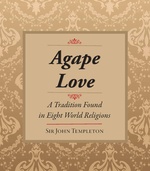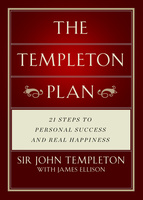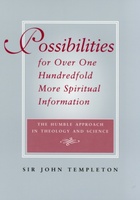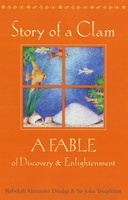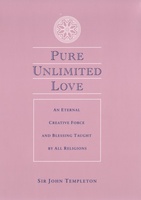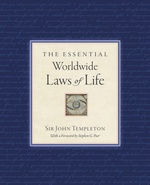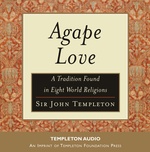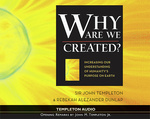Sir John Templeton
Templeton Plan
21 Steps to Personal Success and Real Happiness
- Copyright year: 2013
Possibilities for Over One Hundredfold More Spiritual Information
The Humble Approach in Theology and Science
- Copyright year: 2000
Story Of A Clam
Visionary Fiction
- Copyright year: 2001
Pure Unlimited Love
Understanding and expressing unconditional love—also called agape love—can be a lifelong quest. First, however, we must ask ourselves and others what it is. Is it an action, a universal energy, or a creative principle? And if we understand it, can its expression ever be realized, or is it simply a divine attribute?
These and other questions are addressed in an inspirational and practical style in this philosophical essay from Sir John Templeton. He seeks to define pure, unlimited love as the "transcendent power of divine love that expresses itself through our hearts and minds when we are open and receptive to it." Its greatest attributes are love, joy, peace, patience, kindness, goodness, faithfulness, gentleness, and self-control.
- Copyright year: 2000
The Essential Worldwide Laws of Life
This handsome volume shows readers of all ages, from all parts of the world, how to make their lives more joyous and useful by learning the universal truths that transcend time and culture.
Each law is presented in an essay format, with stories, commentary, and quotations to illustrate its importance. The material is designed to inspire the reader to put these laws into practice and to enjoy the rewarding life that will result.
- Copyright year: 2012
Agape Love
Tradition In Eight World Religions
- Copyright year: 2007
Why Are We Created
While many books strive to stimulate thinking through provocative anecdotes and theories, Why Are We Created? takes a different path. It begins with a question and continues with a multitude of questions like these:
•What is the importance of recognizing the presence of the sacred within us and around us?•How can individuals create a purposeful and fruitful way of life?
•How does happiness relate to one's purpose?
- Copyright year: 2003

